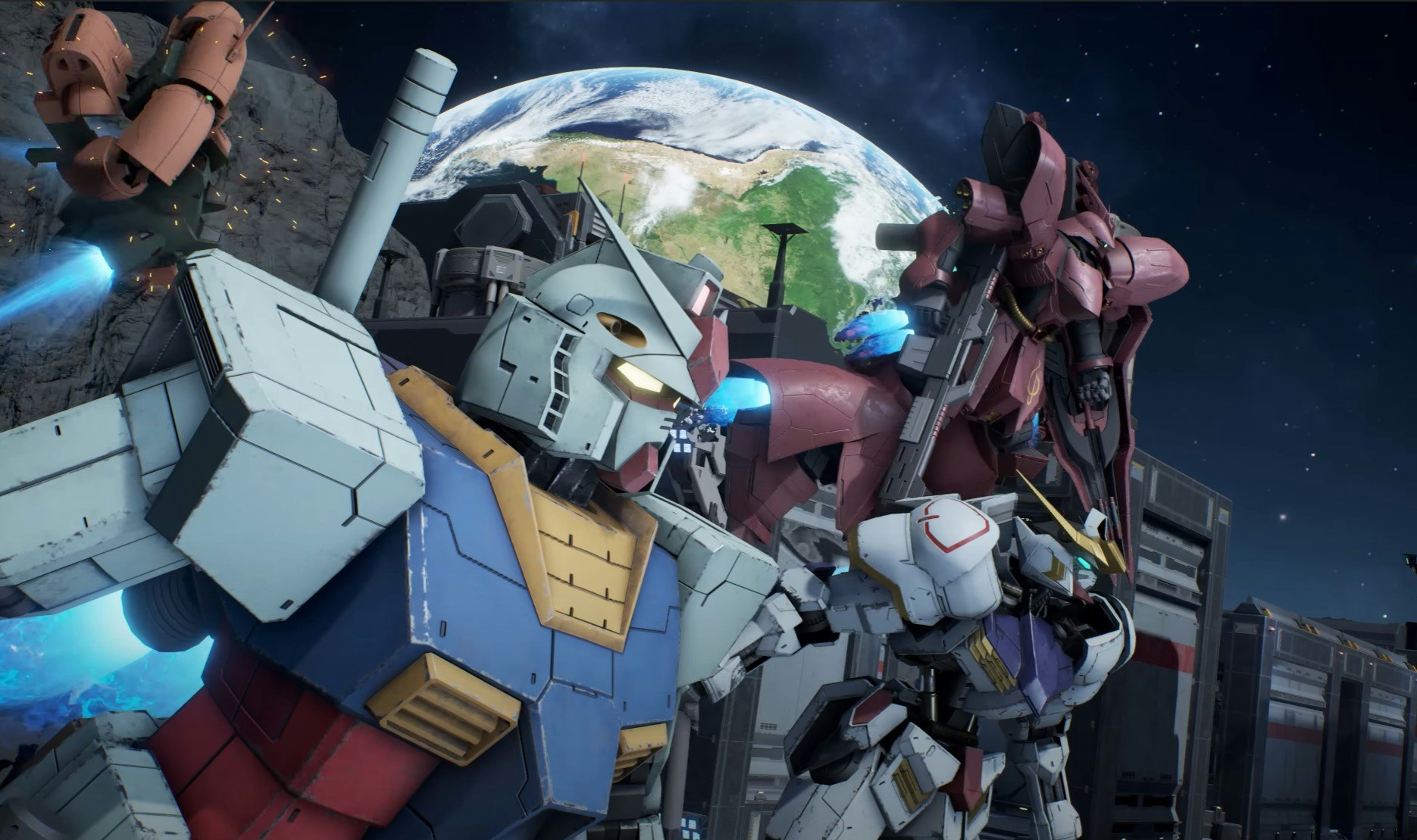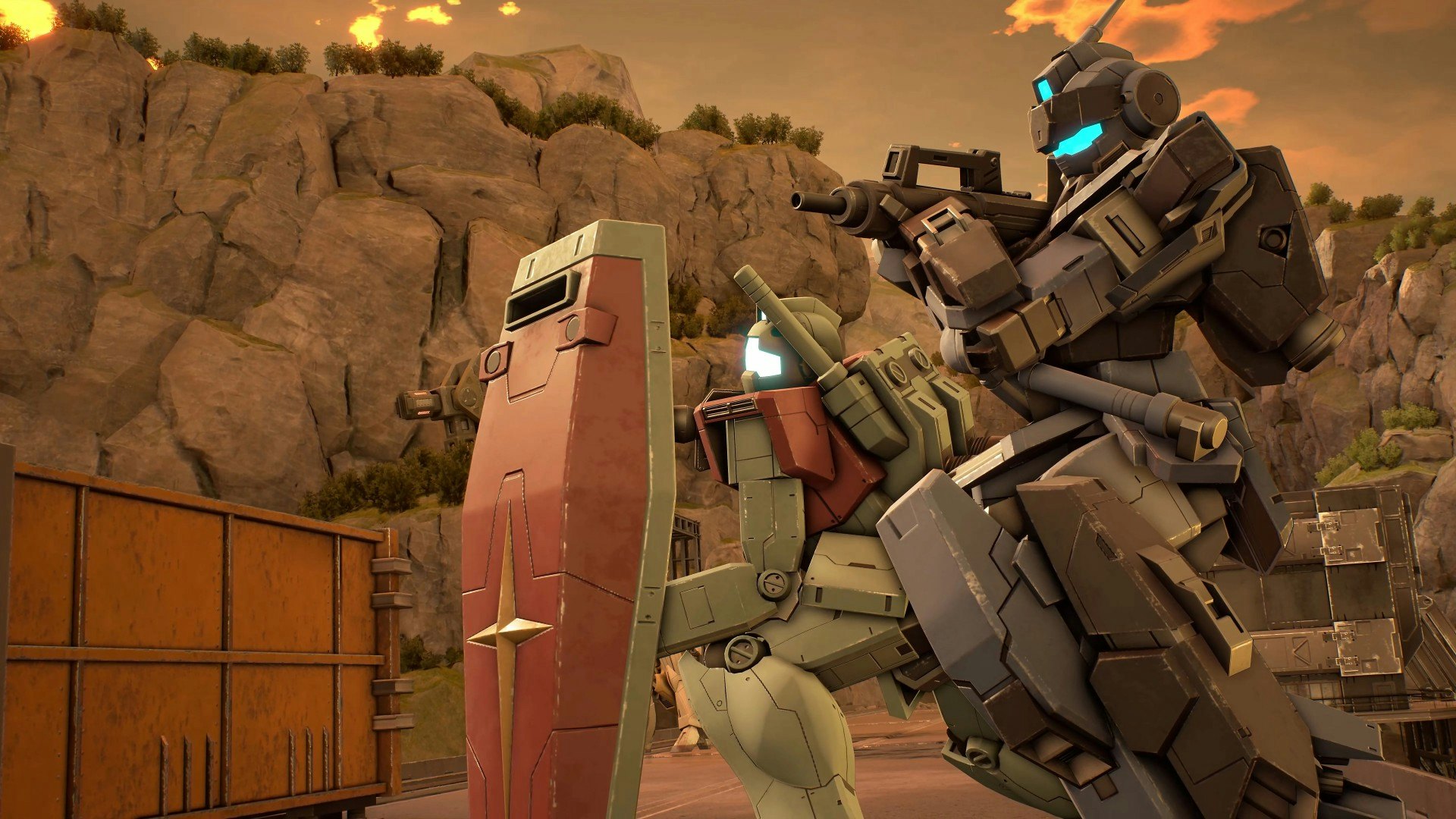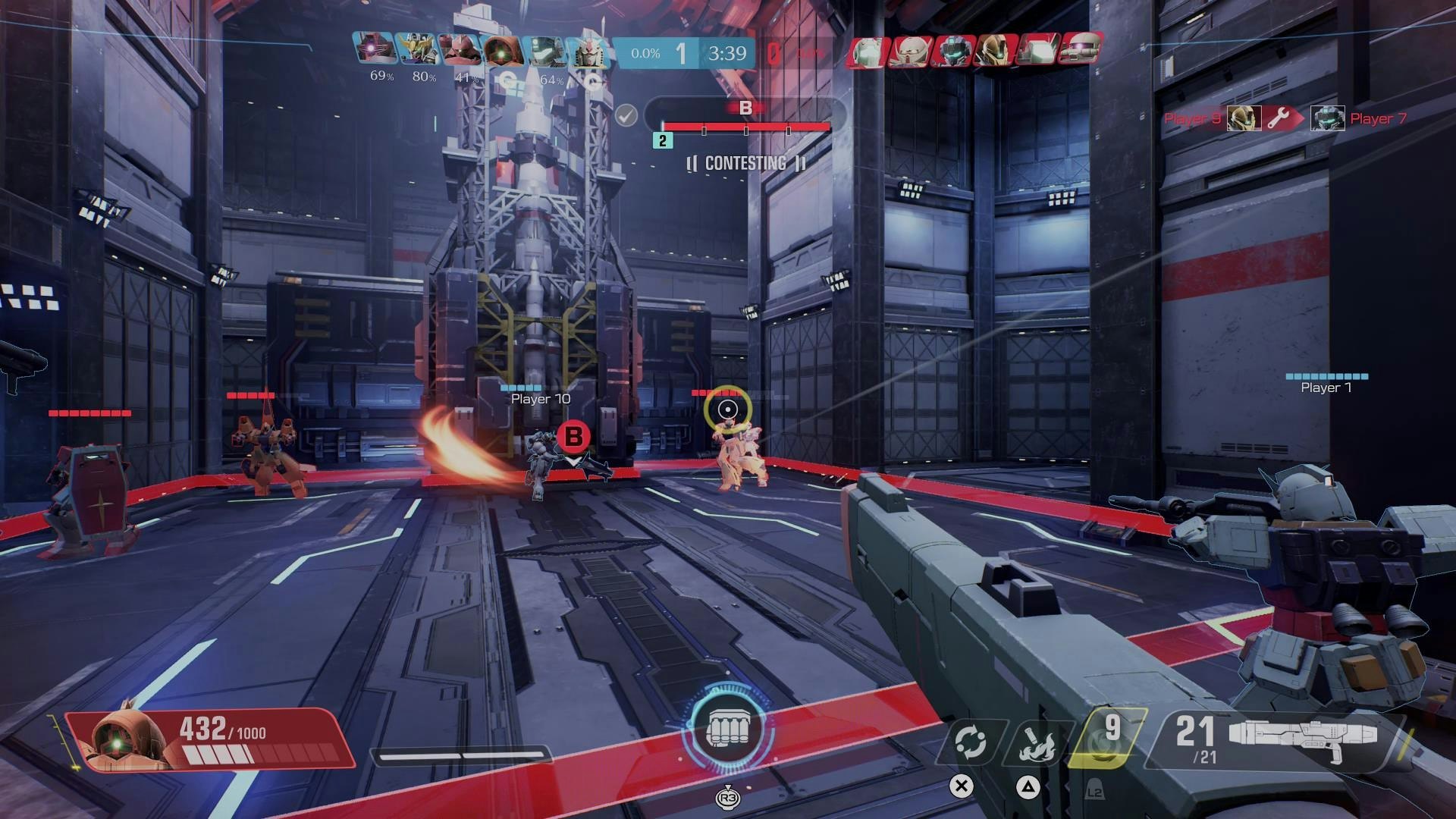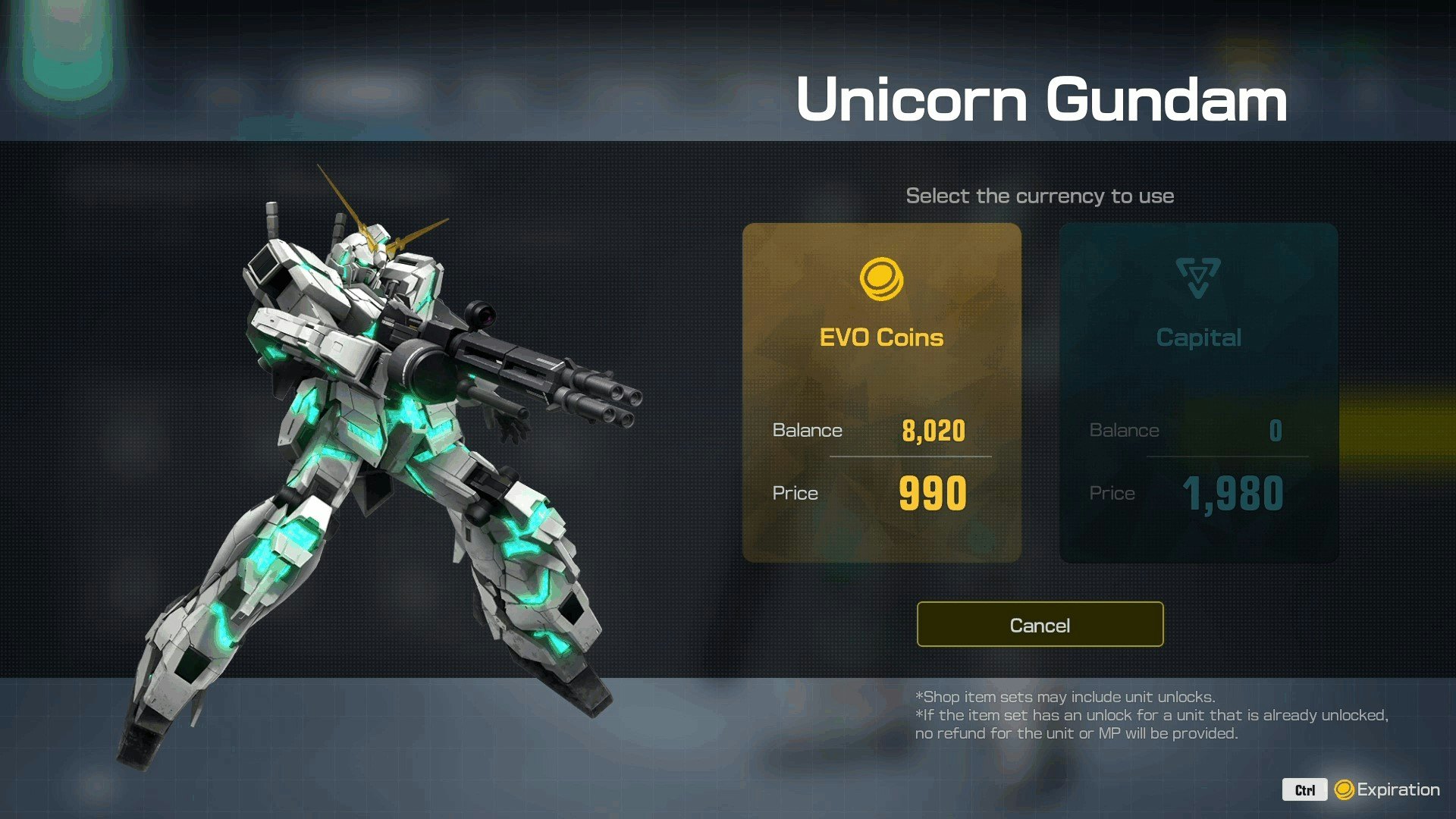
It’s hard to overstate the impact Overwatch has had on gaming at large.
Dozens of games have taken liberal inspiration from the hero shooter since it essentially created a new subgenre in gaming with its 2016 launch.
While plenty of clones have aped the Overwatch formula, few have managed to turn it into anything meaningful, lasting, or even unique. But Gundam Evolution feels like a different beast in a strong position to leverage beloved IP to lure gamers in. While it initially feels like Overwatch with a Gundam coat of paint, Evolution really gets to the heart of what makes hero shooters so much fun: vibrant characters fulfill different roles, so much so that switching around makes it feel like an entirely different game experience.
There are few anime series as long-running as Gundam, and this long history is what makes it the perfect choice for a hero shooter with a dynamic roster. The base game has 12 different playable mobile suits. Each carves out a specific and unique niche in its role.

Guntank is a ranged support unit that has an auto-lock-on feature at the cost of reduced damage, while the DOM Trooper is a mid-range support unit that can lay mines and cause splash damage with its rocket launcher. The real key to Gundam Evolution’s gameplay is that every character has offensive options, and even support units can hold their own in battle when used correctly. For example, Pale Rider can set down a healing field but also use a ranged skill that slows down enemy units, following that up with a grenade strike.
What’s really interesting is how different characters, both allies and enemies, can play off of each other. The Unicorn Gundam constantly heals allies and can boost their armor, making it the perfect support unit for offensive characters that can rush in and wreck an enemy team, like Gundam Barbatos or Sazabi. Melee characters like Gundam Exia and Barbatos can be tough to counter, but Turn A Gundam has a rushing tackle skill that does exactly that.
The interplay between all of the game's heroes really reminds me of when the first Overwatch launched. Bandai Namco has put a ton of thought into designing each of Gundam Evolution’s characters, and while some may feel a bit overpowered right now, everything has a counter.
It’s not all perfect, however, as there are a few problems that need to be ironed out as the game moves forward.
Gundam Evolution is a high-octane shooter that plays out at a blistering pace, and because of that, precision is hugely important. That said, there seem to be some hitbox issues, with some characters having enormous hitboxes while overs seemingly have very small ones. Some of the small hitboxes can be especially aggravating because of how quickly everything moves.

At the same time, Gundam Evolution could absolutely use more variation in its map design and game modes. There are currently three game playable games modes: Point Capture, Domination, and Destruction. Point Capture has one team defending set points while the other attacks, Domination has both teams vying for control of a point that changes through the match, and Destruction has one team trying to set a bomb while the other defends.
By and large, these modes have some nice variation, and the mode you’re playing can drastically change how you approach a map, but it’s easy to see how things could grow stale after a while. It’d be nice to see some drastically different game modes added, maybe something similar to Overwatch's Push.
The biggest problem I have with Gundam Evolution is with the maps themselves, which simply lack the visual flair I’d hoped for. The actual layout and design of the maps aren’t bad, but visually they all kind of blend together into generic sci-fi. I’d love to see Gundam really draw on its history for unique locations. Set a map on the Gryps colony laser, during the assault on Odessa, or in the Thunderbolt sector. What makes Overwatch’s map design work so well is that each map feels so unique visually, making it easier to remember their differences. Here things start to get murky and blend together, even if the nitty gritty design is filled with interesting options like chokepoints and flanking routes.
The other thing that needs to be mentioned is the game’s monetization, which feels a tad aggressive at points. Gundam Evolution is entirely free-to-play and that provides access to the starting roster of twelve characters, which you instantly have access to. That seems fairly generous, but there are currently five additional characters that can be bought with premium currency.

These characters cost roughly $10 each, meaning $50 for the lot, and that’s before you get into the wealth of optional cosmetics, banners, player icons, and more. As you raise your player rank you unlock an in-game currency called Capital, but the rate this is given out feels tremendously sluggish, and if you really want anything you’ll need to shell out real money. That’s not entirely unexpected for a free-to-play game, but it feels like the additional characters, in particular, pack a hefty price point.
Like most hero shooters, the key to Gundam Evolution’s success is going to be how well Bandai Namco supports the game, and whether post-launch content can keep up a steady cadence of adding interesting new content. Still, Gundam Evolution has gotten the most important piece of the Overwatch formula right, making each hero feel distinct and providing interesting interactions between them. What that means is that Evolution should appeal to any fans of the genre, even those without any knowledge of Gundam whatsoever.
With Overwatch 2 taking some questionable design decisions, like newcomers having to unlock the whole roster, Gundam Evolution might be poised to be Blizzard’s biggest competition.
8/10
Gundam Evolution is currently available for PC (which we played for this review), and it also launches on November 30 for PS4, PS5, Xbox One, and Xbox Series X|S.
INVERSE VIDEO GAME REVIEW ETHOS: Every Inverse video game review answers two questions: Is this game worth your time? Are you getting what you pay for? We have no tolerance for endless fetch quests, clunky mechanics, or bugs that dilute the experience. We care deeply about a game’s design, world-building, character arcs, and storytelling come together. Inverse will never punch down, but we aren’t afraid to punch up. We love magic and science-fiction in equal measure, and as much as we love experiencing rich stories and worlds through games, we won’t ignore the real-world context in which those games are made.





